Salon Franziska is a versatile plattform, which tries to connect people within spaces and to make them visible. Salon Franziska is an interdisciplinary group of people which deals with sustainability and the temporary utilization of space.
The integrated approach to science, technology, engineering, arts and mathematics (known as STEAM) is becoming increasingly important. Problem-solving skills enabling us to discover unexpected connections receive higher esteem now.
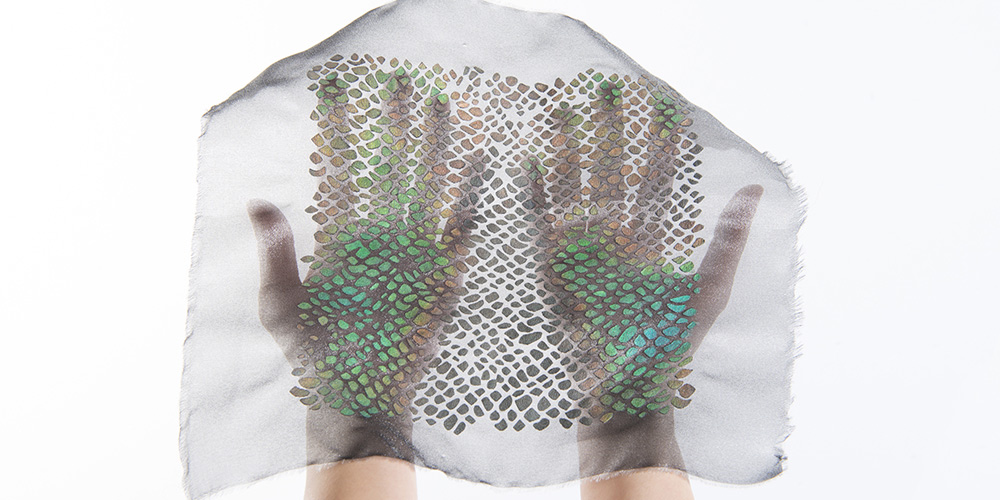
Nature’s patterns, structures, and functions are an endless source of inspiration. We started off the project by examining our body’s design that may be applied to artificial bodies. Through workshops and interviews with experts from Ottobock, we expand our agenda: the language of sensation, interaction, and the aesthetics of artificial bodies. The outcome illustrates our design exploration and possible future of technology and body.
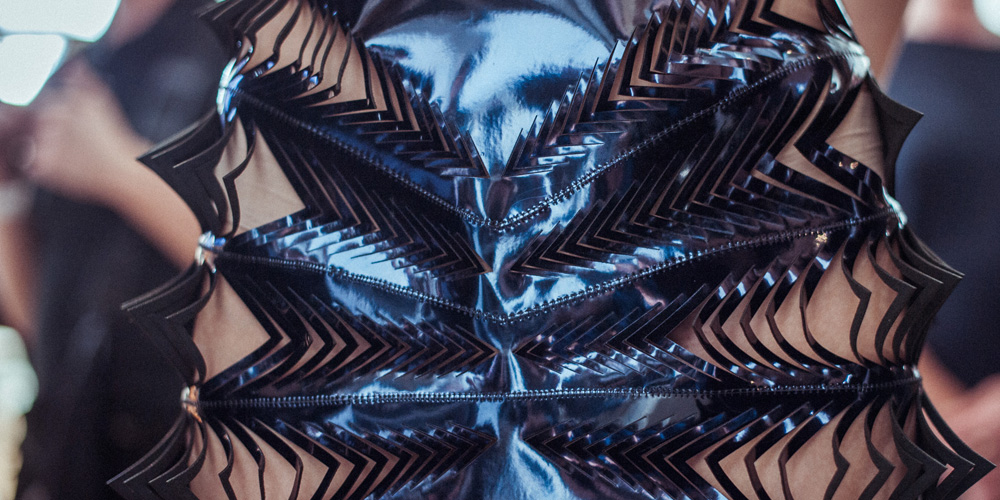
Iris van Herpen explores the interplay of magnetic forces. By thoroughly examining the representation of dynamic forces of attraction and repulsion, the designer fuses nature and technology. Van Herpen worked with techniques like injection molding and laser cutting on maze like structures, 3D printing and intricate architectural handwork on dresses, jackets, trousers, skirts, and blouses, giving them dynamic shapes and surfaces that echo the body’s movement.
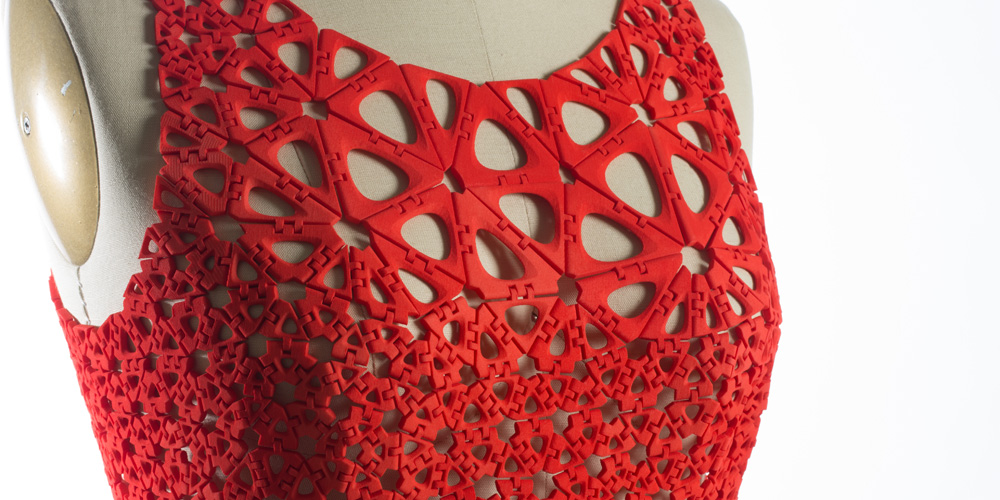
Kinematics Dress represents a new approach to manufacturing that tightly integrates design, simulation, and digital fabrication to create complex, customized products. Composed of thousands of unique interlocking components, each dress is 3D printed as a single folded piece and requires no assembly.

The Living
Hy-Fi offers a captivating physical environment and a new paradigm for sustainable architecture. In this project we tested and refined a new low-energy building material, manufactured 10,000 compostable bricks, constructed a 13-meter-high tower, hosted public cultural events for three months, dismantled the structure, composted the bricks, and returned the resulting soil to local community gardens.
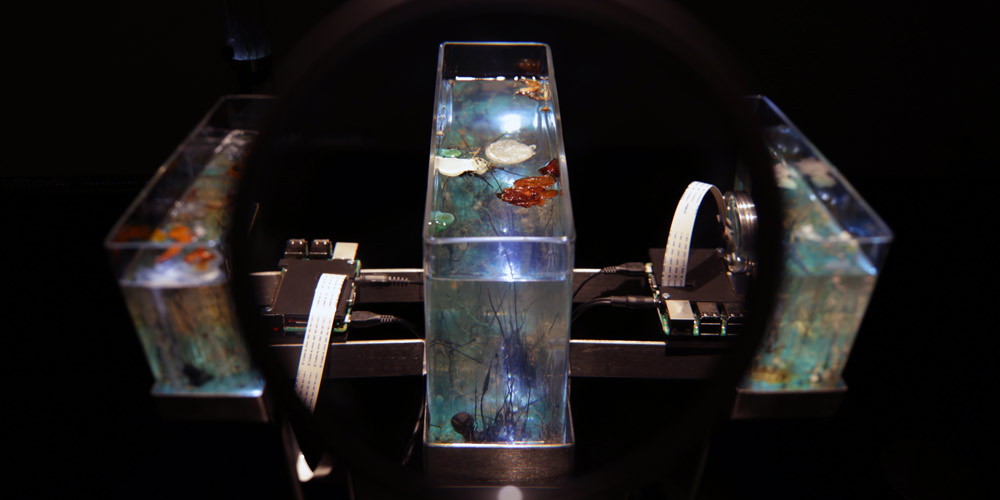
Time Displacement—Chemobrionic Garden explores a relationship between hydrothermal chemistry, the passage of time, and evolution of sound. The project consists of several small chemical garden formations in a water glass (sodium metasilicate) solution to provide an insight into research on chemical processes and the origin of life. The chemical reactions are monitored by cameras to detect changes in color and shape by means of microcontrollers. The changes affect the code for live sound generation, and slowly alter the generative drone composition pervading the gallery space.
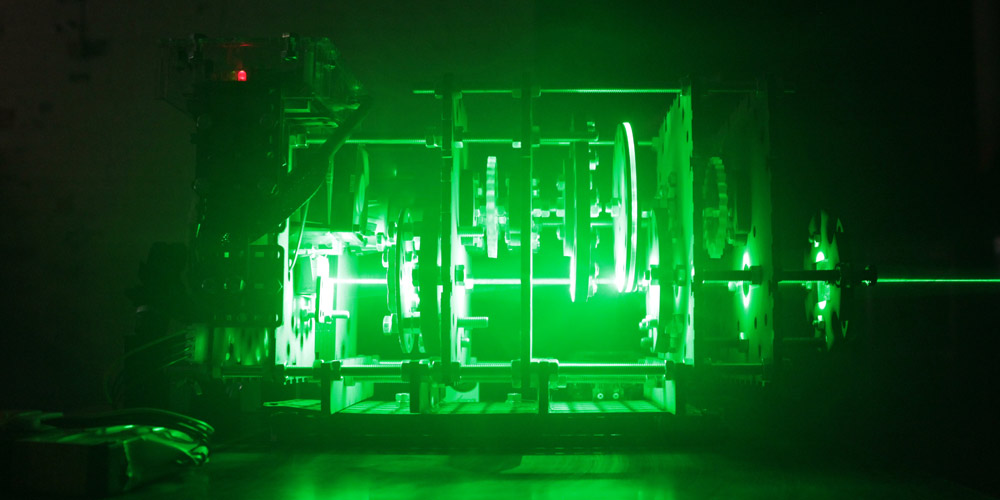
In 2015 Project Nimbus achieved the inaugural projection of moving images onto clouds from aircraft. The image (Horse in Motion – Muybridge 1878) is a shared cultural reference between art & science. Beyond the spectacle, genuine collaboration was underpinned by art as research, involving aviators, technologists, and cultural specialists, driven by the power of idea and joy of risk, giving freedom from commercialization. Inspired by a proposed US military non-lethal weapon, the Laser Zoopraxiscope Mk6 is an open source cloud projector, combining historical and innovative projection technologies.
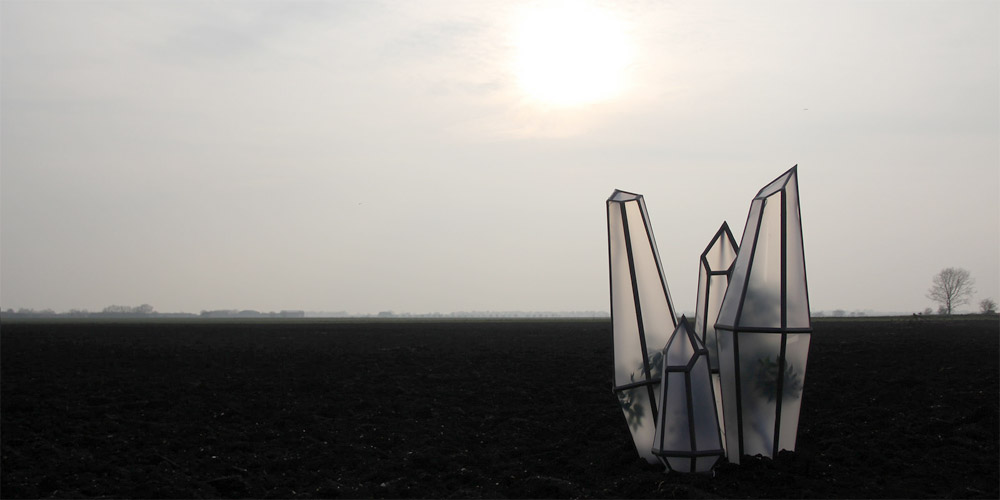
Instruments are created to transform contamination into valuable materials, by employing plants and engineered bacteria. Instead of mining material from geological sources and using fossil fuels that lead to environmental harm, could future generations use the contamination and pollution we leave behind to build their future world? Can they build balanced relationships with the natural world to be a no-waste civilization? A series of new instruments use synthetic biology, plant science, and nanotechnology. Whilst cleaning the land, they remember the mistakes of the past and create materials to build a post-waste future.
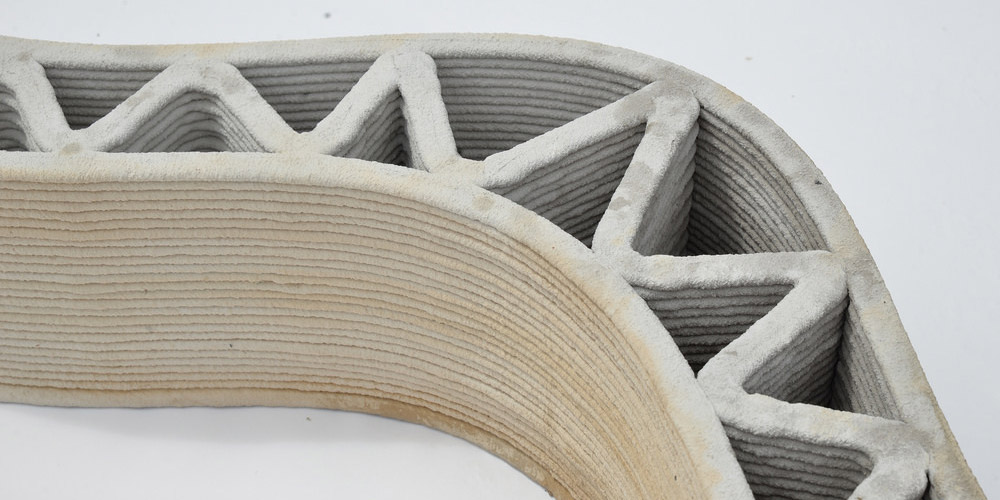
The Institute for Experimental Architecture/Hochbau is part of the Faculty of Architecture at Innsbruck University and headed by Prof. Marjan Colletti. Since the establishment of the Robotic Experimentation Laboratory—REX|LAB in 2012, robotic fabrication methodologies have been a pivotal research trajectory for the institute.

